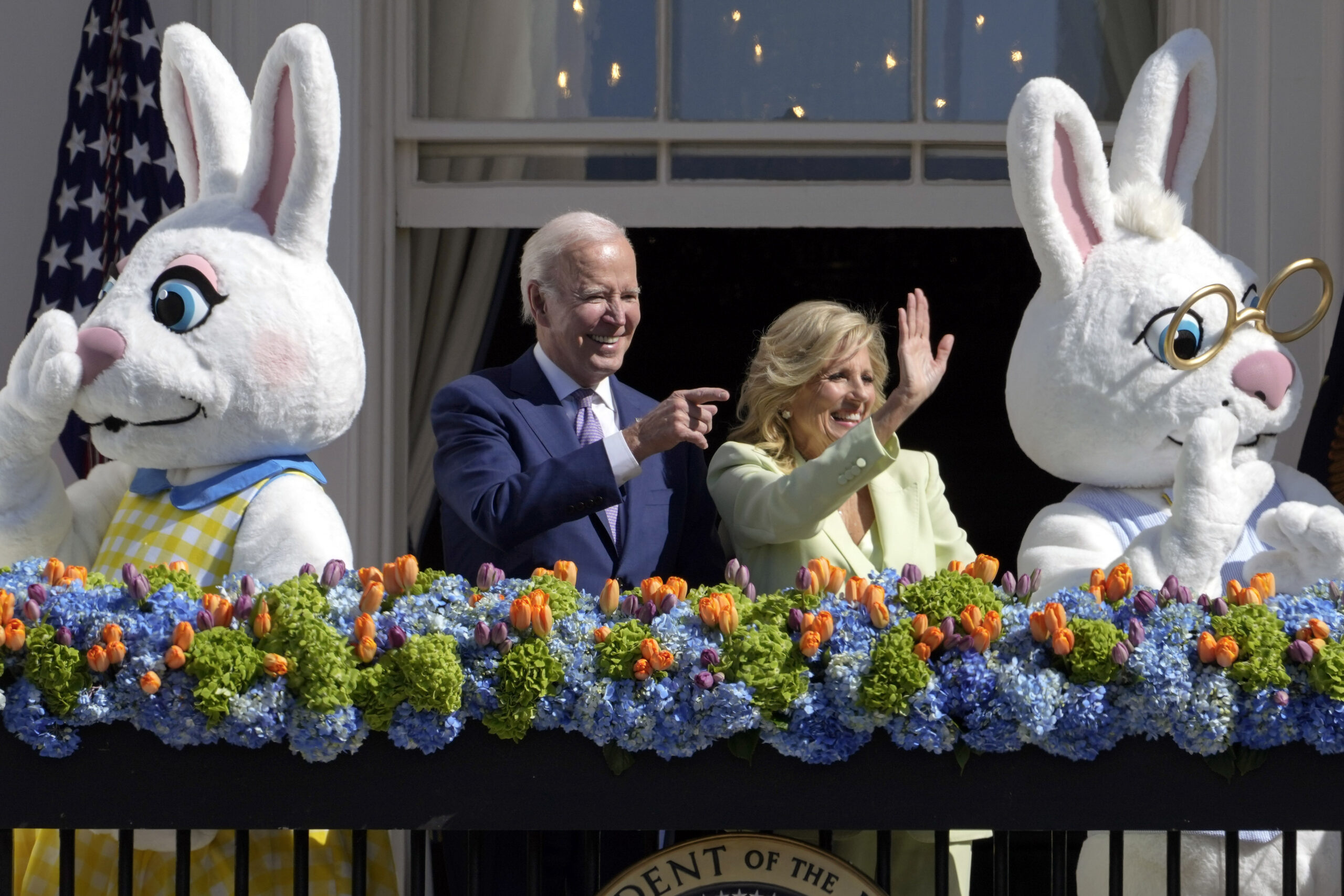

Ahead of Easter, Republicans are highlighting how much inflation has driven up the cost of the holiday since President Joe Biden entered office.
Inflation began to spiral upward shortly after Biden entered the White House in January 2021, with annual price growth peaking at about 9%. While price growth has fallen, inflation is still running too hot, and Republicans are seizing on the Easter holiday to highlight just how much more festivities cost now than before Biden’s presidency.
“Unfortunately, the Easter Bunny will spend significantly more on dinner, treats, and easter baskets this year,” Republicans on the House Budget Committee said in a Friday news release. “Americans are looking forward to a family dinner, an Easter Egg hunt, or a bouquet of flowers this weekend but feel the strain on their wallets.
“This Easter, prices are at an all-time high,” the committee added.
Headline inflation is a metric that factors in price changes for all of goods and services. Inflation has totaled 3.2% over the past year, according to the latest consumer price index data.
But the costs of individual foods associated with Easter have risen much more.
Eggs, closely associated with Easter, are once again rising in price. Egg prices hit record highs near the end of 2022 when a terrible wave of avian influenza took hold, killing off millions of laying hens and dramatically crimping supply. Prices then crashed as supply caught back up. But since last September, egg prices have been creeping back up.
In just the past month alone, the price of eggs is up 8.4%, far outpacing overall inflation. Still, egg prices are down 17% since this time last year.
Republicans, though, have framed the egg price increases in terms of how much they have risen since Biden entered office.
In a Friday morning press release, super PAC Make America Great Again Inc., which supports former President Donald Trump’s effort to defeat Biden in November, highlighted the increase in the cost of several food items associated with Easter since January 2021.
The price of eggs is up 49%; biscuits, rolls, and muffins are up 26%; ham is up 17%; and beef for roasting is up nearly 30%, the group said, citing data from the Bureau of Labor Statistics.
While there are various factors at play for inflation, at least with eggs, the biggest determinant by far is avian influenza, American Farm Bureau Federation economist Bernt Nelson explained to the Washington Examiner during a Friday interview.
Right now, avian influenza is still not too bad, although there have been some notable outbreaks in recent months driving up prices a bit. Yet egg farmers worry about what’s in the pipeline for layers, which are the birds that lay the eggs that shoppers buy.
“So, layers in the United States down about 1% — so the ability to produce these eggs is just a little bit reduced,” he said. “And as we go into the spring migration … where we see a higher likelihood of the spread of avian influenza, there are concerns regarding this matter.”
The good news is that so far there hasn’t been a massive spring uptick. Bernt said that if things stay quiet, prices could stay stable or maybe even come down some as summer approaches.
Another staple for Easter is chocolates, which are made from cocoa. Cocoa prices are surging to record levels as production in Africa plummets.
The Ivory Coast and Ghana account for over 65% of world cocoa production, but production in the region has been threatened. Atop the list of problems are an aging stock of cocoa trees and the spread of a disease known as swollen shoot virus.
Global cocoa prices have ballooned 245% since this time last year and are up an astonishing 128% since just the start of 2024.
While Easter prices might see a bit of a bump in chocolate prices this Easter season, major companies, such as Hershey, Nestle, and Mars, have successfully hedged the risk of higher cocoa prices. So the big price increases will take longer to filter through to consumers.
Biden has faced a torrent of criticism from Republicans about his handling of the economy, specifically inflation. The White House has been working to convince voters that his economic vision is sound, but inflation has been a major concern for families.
There have been some signs that perceptions of the economy and inflation are shifting a bit, though.
In a positive sign for Biden, consumer sentiment rose in March to the highest level in more than two years and expectations for inflation fell.
CLICK HERE TO READ MORE FROM THE WASHINGTON EXAMINER
The University of Michigan Consumer Sentiment Index rose to 79.4 in March, up from a preliminary reading of 76.5. That is a 28.1% change from this time last year. Sentiment is now at the highest level since July 2021, before the U.S. began grappling with its explosive bout of inflation.
While Biden’s polling on the economy still is quite bad, it has seen some slight improvements. A recent CNBC survey found that Biden’s economic approval numbers are only at 37%, which is up from 33% in December.







